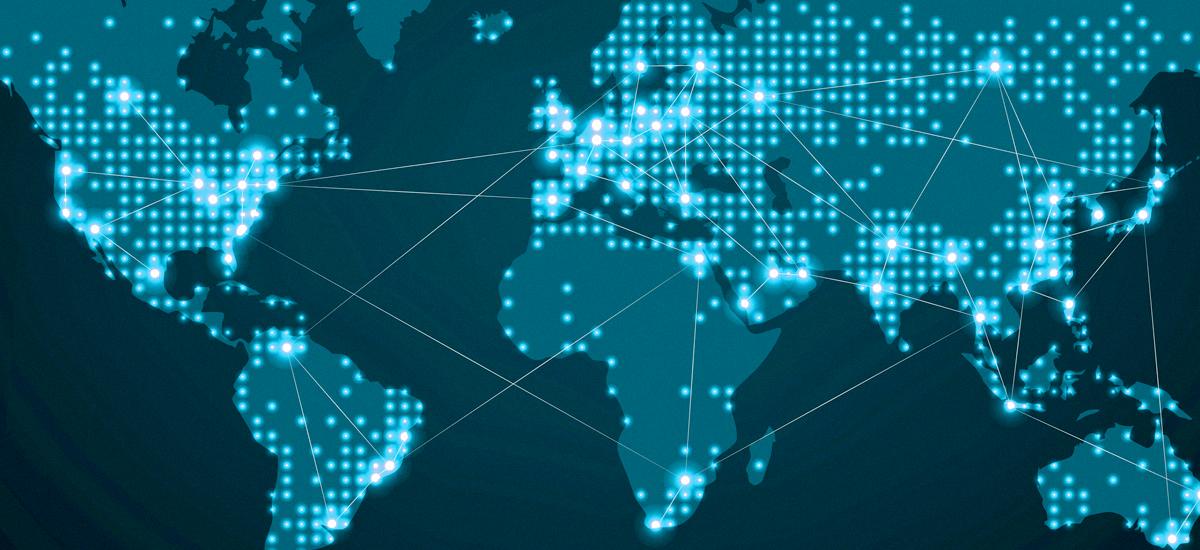Geoblocking is a way of protecting digital content by allowing only certain users to access it. It’s a popular method used by streaming services, such as Netflix, Hulu, and HBO Max, to ensure that their content is only accessible in the countries or regions where they have secured the necessary licensing agreements.
Geoblocking works by using an IP address to determine the user’s location and then blocking or redirecting them if they are outside of the approved geographic area. This type of restriction can be used for any type of online service or content, including streaming services, online gaming platforms, e-commerce websites, and even search engines.
The main purpose of geoblocking is to help protect copyright and licensing rights for digital media and products. By limiting access based on geography, companies can ensure that they are not infringing on any international laws or agreements when distributing their content. It also helps companies manage their revenue streams more effectively since different countries may have different pricing structures for similar products or services.
There are a few ways users can bypass geoblocking if they want access to content in another country. One option is to use a VPN (Virtual Private Network) which encrypts traffic and masks the user’s IP address so that it appears as though they are accessing from an approved region. Another option is to use DNS (Domain Name System) masking which enables users to access specific domains while hiding their location from the server they’re trying to connect with.
geoblocking is an important tool for companies who need to protect their intellectual property rights while still allowing customers access to digital content in different parts of the world. While there are ways around this type of restriction, it’s important for users to understand that bypassing geoblocking may be against company policies and could lead to legal consequences depending on local laws.

Is Geo-blocking Legal?
Yes, geo-blocking is legal in many cases. Geo-blocking is a form of regional restriction that is employed by online content providers to restrict access to their content based on the geographical location of the user. It is usually used to enforce copyright agreements and licensing laws, as the owner of content varies between different regions.
Geo-blocking can also be used for other reasons such as preventing access to certain websites or services in certain countries due to political reasons or security concerns. In some cases, this type of geo-blocking may be necessary to comply with local laws and regulations.
In general, geo-blocking is considered legal as long as it does not violate any international trade agreements or anti-discrimination laws. However, some jurisdictions have begun to enact legislation that prohibits certain types of geo-blocking or requires companies to disclose their use of geo-blocking technology. For example, the European Union has passed a regulation that requires online service providers to inform users about any restrictions they are subjecting them to due to their geographical location.
Is Bypassing Geoblocking Legal?
Bypassing geoblocking is not strictly illegal, but it is typically considered a violation of the terms of service of streaming services and other websites. Geoblocking is used to restrict access to certain content based on a user’s geographic location. It is a way for companies to comply with regional licensing agreements and laws regarding content distribution.
In some cases, bypassing geoblocking may be seen as a form of copyright infringement or piracy, which can lead to legal action. However, it is important to note that simply bypassing geoblocking does not necessarily mean that any copyright infringement has taken place. Depending on the type and amount of content being accessed, it could be seen as fair use and not breach any copyright laws.
Ultimately, it is up to individuals to decide whether they wish to accept the risk associated with bypassing geoblocking. If you do choose to do so, make sure you are familiar with the terms of service for the website or streaming service in question and understand the potential legal implications if you are found in violation.
The Benefits of Netflix’s Use of Geo Blocking
Netflix uses geo-blocking to comply with the terms of their licensing agreements, which often restrict the streaming of content to specific countries or regions. This means that Netflix can only stream content in places where it has a valid license for that content. By using geo-blocking, Netflix is able to ensure that their customers are only viewing content for which they have purchased a license. Geo-blocking also helps Netflix protect its intellectual property rights by preventing illegal streaming of its copyrighted material. Additionally, geo-blocking helps Netflix tailor its offerings to different countries and regions around the world, ensuring that customers in each area get access to the most relevant content.
Examples of Geoblocking
Geoblocking is a technology that restricts access to digital content based on the geographic location of the user. This is most commonly used by streaming services like Netflix and Amazon Prime, which limit their content library based on country of origin. For example, if you live in the US, you may not be able to view all of the TV shows and movies available in other countries. Similarly, some websites may only be accessible from certain countries due to geo-restrictions. Geoblocking can also be used to block online purchases or downloads based on location.
Bypassing Geoblocks
Geoblocking is the practice of restricting access to online content based on a user’s geographic location. To get around a block, the most effective way is to use a Virtual Private Network (VPN). A VPN encrypts your internet traffic and routes it through a server located in another country, thus allowing you to access websites and services that are blocked in your current location. Additionally, proxy servers can also be used to bypass geoblocking restrictions as they act as an intermediary between you and the website you’re trying to reach. Another option is to use the Tor browser, which offers anonymity and security by routing your internet traffic through different nodes around the world. Finally, there are smart DNS and DNS changes that can be used to redirect your traffic around certain restrictions.
The Best VPN for Bypassing Geo-blocking
The best VPN for bypassing geo-blocking is NordVPN. It offers a large network of servers in more than 90 countries, meaning you can access streaming platforms and services no matter where you are. Additionally, NordVPN utilizes 256-bit encryption technology to protect your data while browsing the web. It also provides a range of other privacy tools, such as an automatic kill switch and DNS leak protection. Plus, new subscribers can take advantage of its 30-day money-back guarantee.
Geoblocking in Different Countries
Geoblocking is a method of blocking access to certain websites or services based on the geographic location of the user. It’s commonly used by businesses and governments to restrict access to content for legal, security, or economic reasons.
The countries that use geoblocking vary greatly depending on the particular service or website in question. Generally, however, major countries like the United States, United Kingdom, France, Germany, China, Russia, Canada, and India are among those that utilize geoblocking. Additionally, many smaller nations such as Australia and New Zealand also have restrictions in place.
Geoblocking can be used to protect intellectual property rights by restricting access to certain types of content in certain countries. For example, some streaming services use geoblocking to ensure that only users in certain regions have access to their content. Similarly, many online stores use geoblocking to prevent customers from outside certain geographic regions from buying their products.
Finally, some governments use geoblocking as a way to regulate online activity within their own borders. For example, China heavily restricts access to foreign websites within its own borders through geoblocking technology. Similarly, Russia has used geoblocking as a way to enforce its “data localization” laws which require companies to store user data within the country’s borders.
Does Amazon Prime Use Geo-blocking?
Yes, Amazon Prime does have geo-blocking. This means that some content is only available in certain parts of the world, due to licensing restrictions. For example, if you are based in the US and try to access content that is only available in the UK, you will be blocked from viewing it. To get around this issue, you can use a Virtual Private Network (VPN) to change your IP address and make it appear as though you are accessing the content from another country.
Bypassing Geo-blocking Without Using a VPN
Geo-blocking is the practice of restricting access to websites based on geographic location. To bypass geo-blocking without using a VPN, you can use a Smart DNS service. Smart DNS works by re-routing your computer’s DNS requests to a different server located in a different country or region. By doing this, websites that are normally blocked in your location will become unblocked and accessible. This is because the website will think that you are located in the country or region where the Smart DNS server is located. You can also try using proxy servers or free web proxies, which work similarly to Smart DNS but may be slower and less reliable.

Source: cartesian.com
Conclusion
In conclusion, geo-blocking is a legal practice used by streaming sites like Netflix and Amazon Prime to protect their licensing agreements. Bypassing geo-restrictions is not illegal, however, it is in violation of the streaming service’s terms of service. Geo-blocking works by restricting access to certain content based on a user’s geographic location, thus protecting the intellectual property rights of the content owners. Ultimately, this practice allows streaming companies to provide users with access to content that would otherwise be unavailable due to licensing agreements.








